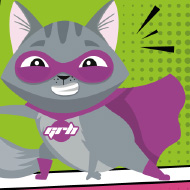
The BSAVA’s new hub includes lectures, webinars, and case examples.
The British Small Animal Veterinary Association (BSAVA) has launched a new set of resources to support graduate veterinary surgeons during the first few years of their career.
The BSAVA Graduate Resource Hub is designed to increase the confidence and competence of new veterinary surgeons embarking on their first jobs. The content has been selected to help them brush up on guidelines and best practice, as well as gaining tips and insights on topics ranging from clinical skills to personal wellbeing.
Resources on the platform include BSAVA Congress lectures, webinars, and chapters from manuals. In total there are more than 400 individual resources.
Carl Gorman, president of the BSAVA, said: “Graduates will have access to a whole range of case examples, and resources which can help them to be prepared when they see those consultations for the first time, but can also provide discussion points for conferring with senior colleagues and peers, and it will also help them to develop their VetGDP portfolios and EPA’s.”
The hub, which is free to BSAVA members who are in their first, second or third year after graduation, also features a community forum for asking questions, discussing topics, and connecting with peers.
Dr Gorman added: “There is also a comprehensive range of non-clinical material. We really recognise that new graduates need to look after themselves in their own personal and professional development. We need them to be confident and to enjoy their start in practice life.”
The hub can be accessed via the online BSAVA Library.
Image (C) BSAVA



 The Veterinary Medicines Directorate (VMD) is inviting applications from veterinary students to attend a one-week extramural studies (EMS) placement in July 2026.
The Veterinary Medicines Directorate (VMD) is inviting applications from veterinary students to attend a one-week extramural studies (EMS) placement in July 2026.